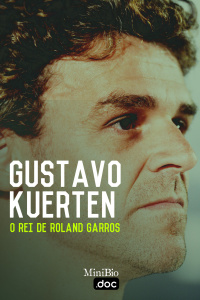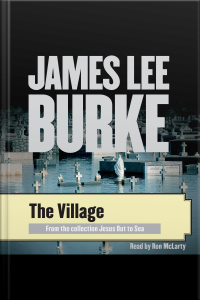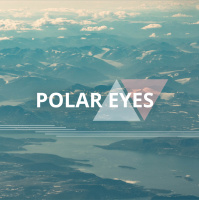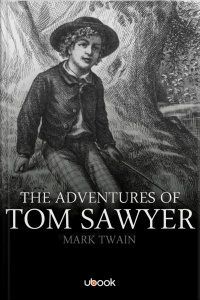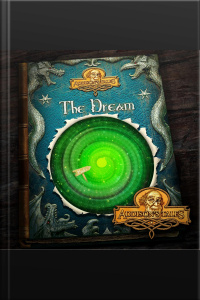Ice Coffee: The History Of Human Activity In Antarctica
- Autor: Vários
- Narrador: Vários
- Editora: Podcast
- Duração: 121:33:35
- Mais informações
Informações:
Sinopse
The history of human activity in Antarctica
Episódios
-
036_Ice_Diving
30/11/2016 Duração: 33minI'm sick of 2016. A friend just died for stupid reasons and my extended family and many friends are facing life in the USA under president Donald Trump and his cabinet of elite racists. I really have not been in the mood to read about noble suffering under the Victorian model of manliness and my notes about Scott's death on his return from the pole came to a grinding halt about two weeks ago. Here's a Frankenstein's episode stop gap comprising essays from the past about ice diving and contrasting Scott Base and McMurdo Station. I'll get back to the history in time for Christmas but in the mean time 2016 can fuck right off.
-
035_Terra_Nova_BAE_2
18/10/2016 Duração: 34minA dark clockwork comprising duty, ambition and hurt pride winds up Captain Scott and sets him on his path back to Antarctica.
-
034_I_am_whaling
02/10/2016 Duração: 15minAt the start of the twentieth century whaling in the Southern Ocean was on the uptick. The players and mechanisms in play held considerable sway in geographic outcomes, with claims and counter claims taking on a new urgency once the parties operating in the south had some oil in the game.
-
033_Upstairs_Downstairs
28/09/2016 Duração: 07minWith just seven minutes up my data storage sleeve and some expeditions featuring weird relationships between officers and men in the offing, this seems an opportune time to map the boundary between the commissioned and the other ranks in the Victorian era and its immediate aftermath.
-
032_Charcot_Pourqouis_Pas?
13/09/2016 Duração: 46minCharcot leads his second Antarctic expedition aboard a new ship with a new engine. What could possibly go wrong? More groundings, more whimsy and more coastline explored. Well done those Frenchmen.
-
031_Shackleton_Nimrod_BAE_Philip_Samartzis
31/08/2016 Duração: 01h31minErnest Shackleton heads south in a dodgy ship, short on funds and with a flea in his ear from Scott, but manages to get a lot done and get everyone home safely. Lots of firsts but the south pole remains unclaimed and, with two teams alleging they made it to the north pole, becomes even more alluring. Douglas Mawson, Aenaes Mackintosh and John King Davis make their Antarctic entrances while Frank Wild and Ernest Joyce make their second forays south. Professor Philip Samartzis of the Royal Melbourne Institute of Technology becomes the first artist interviewed for the series and discusses why and how he headed south for the sake of his art.
-
030_Photography_Sledging_Maladies_Jacinda_Amey
31/08/2016 Duração: 43minPhotography, sledging, hypothermia, frostbite and snow blindness have been getting a lot of mentions in episodes addressing the heroic age and I thought it high time these things be given some attention, as they’re not leaving the narrative anytime soon and I don’t want anyone left in the dark regarding photo-keratitis. Dr Jacinda Amey is one of New Zealand’s hardest case people and I was privileged to spend time with her at Scott Base in 2005. Another Radio Tuna interview that never went anywhere is resurrected.
-
029_Charcot_Francais_Craig_Franklin
16/08/2016 Duração: 32minJean Baptiste Charcot heads south, in yet another ship named after a place, looking for adventure, science and Swedes. Good food, good wine and inadequate heating and propulsion characterised life aboard the Francais but the French got a lot done, showed their mettle in a miserable display of hard as nailsness, and came home with all hands. Professor Craig Franklin first came on my radar in an interview with Richard Fidler. His range of research interests includes but is far from limited to the physiology of ice fish. He spoke to me about his work below the circle and I look forward to getting my hands on the “Antarctic Cruising Guide” he wrote with Peter Carey. The author combination of a scientist and a national laureate could make this the Australasian “The Log of the Sea of Cortez.” The appended link leads to a review of the 2006 first edition but the book is now in its third iteration. Guess who it’s published by.
-
028_Scott_Discovery
03/08/2016 Duração: 01h04minRobert Falcon Scott makes his first but far from his last appearance in the series and a two year voyage to McMurdo Sound. Much sledging. Very scurvy. Sir Clements Markham continues to kick downhill to have his way but the back of his bullying breaks when someone take his prophecies of doom at face value. Wilson, Shackleton, Crean, Frank Wild, Taffy Evans, Lashly and Joyce make their Ice Coffee debuts appearances while Louis Bernacchi is back for an encore. I struggled to keep this episode to a reasonable time, as I knew I would. So much has been written about Scott and his story looms so large in my early understanding of the continent that I really had to work to keep this as concise as I did, which isn't very. I see a shadow on the horizon in the form of Scott's second voyage south. I don't think I can keep that to one episode no matter how many reefs I put in my script. Among others we've got Charcot's efforts and the return of Shackleton to navigate before we get to the Terra Nova expedition, tho
-
027_Bruce_and_the_SNAE
14/07/2016 Duração: 27minWilliam Spiers Bruce showed the world what a team could achieve if they ignored the south pole and got on with some science. Under his guidance the Scottish National Antarctic Expedition established the longest continually occupied meteorological station and discovered large numbers of Antarctic marine species but what I like most about the Scot is how much he got on Sir Clements Markhams' nerves.
-
026_Nordenskjold
01/07/2016 Duração: 25minNever heard of Nordenskjold? You have now, and he's pretty darn spiffy. Likely the reason Nordenskjold isn't better known is that Shackleton and Mawson's later tales of survival against stacked odds drew attention away from the challenges faced and bettered by the Swedes who sailed to the Antarctic aboard the Antarctic. Carl Anton Larsen makes a repeat appearance, reprising his role as competent Norwegian ice pilot. I'm all outta coffee and counting down the minutes until resupp.
-
025_Drygalski_and_the_Gauss
25/06/2016 Duração: 25minGermans winter in fast pack ice, make some geographic discoveries, fly, sledge, and science as much as they can, but it's the diving that sets the voyage of the Gauss apart, in my eyes. Willy Heinrich - die Achtung!
-
024_Borchgrevink
25/06/2016 Duração: 26minCarsten Borchgrevink adds to his track record as a git and gets on everyone's nerves in the first winter spent ashore in Antarctica.
-
023_The_IGC_and_the_Belgica_and_Peter_Cleary_on_leopard_seals_and_dog_teams
31/05/2016 Duração: 53minBritish pride is a'stirring and Germany hankers for some long, hard sciencing but it's the Belgians out in front, showing everyone how it's done if getting trapped in the pack and going mad is the goal. Some notes about navigation notes presage some future episodes about spurious claims on fruitless firsts but the real appeal of episode 023 is the interview with Peter Cleary, who discusses leopard seals and dog teams. The interview is another outing from the non-event that was Radio Tuna. Recorded in 2004, not 2005 as noted in the episode. I can tell, because it features Dr Paul Brewin in the Scott Base ambience. Again the Minidisc recorder adds its clicks and whirs but je ne regrette rien, only with better French pronunciation than I can bring to the table.
-
022_Bull_Rob_Robbins
30/04/2016 Duração: 29minMore Norwegians head south seeking whales. A kerfuffle over who's on first marks the start of the Heroic Age. In 2005 I recorded an interview with Rob Robbins, head of the USAP diving programme. This was slated for a New Zealand radio programme that never came about, itself a rip off of RRR's "Radio Marinara" in Australia, and was captured using a badly battered Mini-Disc unit. It's not the best audio but I could have been using sticky tape and iron filings as a recording medium, for all I cared. Rob Robbins is legend among my circle and I was stoked to have his time and attention. With "Radio Tuna" failing to launch, this is the material's first outing.
-
021_Cooper_Dallman_Challenger_Dundee_Larsen
30/03/2016 Duração: 24minLittle Antarctic exploration occurred in the decades immediately after the French, American and British race south that rounded out the 1830s. American, German, British, Scottish and Norwegian visitors did turn up looking for whales and in the course of the invention of oceanography. This episode takes the series up to the 1890s and sets the scene for the voyage that would kick off the Heroic Age of antarctic exploration in all its capitalised glory.
-
020_Ross_Crozier
01/03/2016 Duração: 28minWith many Arctic winters and more Arctic summers under their belts, Ross and Crozier got a lot done and brought their crews home safely. Gongs all round.
-
019_Scurvy
28/02/2016 Duração: 15minIt's just a word sometimes employed by people pretending to be pirates to most modern ears but until recently scurvy stood as a perplexing and deadly problem for mariners and polar explorers. In this episode I discuss how sailors and scientists solved the scurvy riddle, screw up an attempt to say "very low levels," and make myself sad.
-
018_Wilkes
10/02/2016 Duração: 28minFor my money, Charles Wilkes is the first of the Antarctic matinets. Drawn south by the opportunity to lead a large expedition and little else, his attempts to coordinate six poorly fitted out and ill matched ships crewed by people who largely thought little of him went every bit as well as that sentence presages.
-
017_Dumont_d_Urville
29/01/2016 Duração: 16minFirst out of the blocks in the three way race south, Dumont d'Urville does a fair job with the resources France can throw at the project after much war and revolution and war and blockades and war. Often described as a nineteenth century analogue to the Space Race, I think of this period in Antarctic history as the nineteenth century race southward, of which the Space Race was a twentieth century analogue, because causality.




